Are companies and consumers ready to shun plastic?
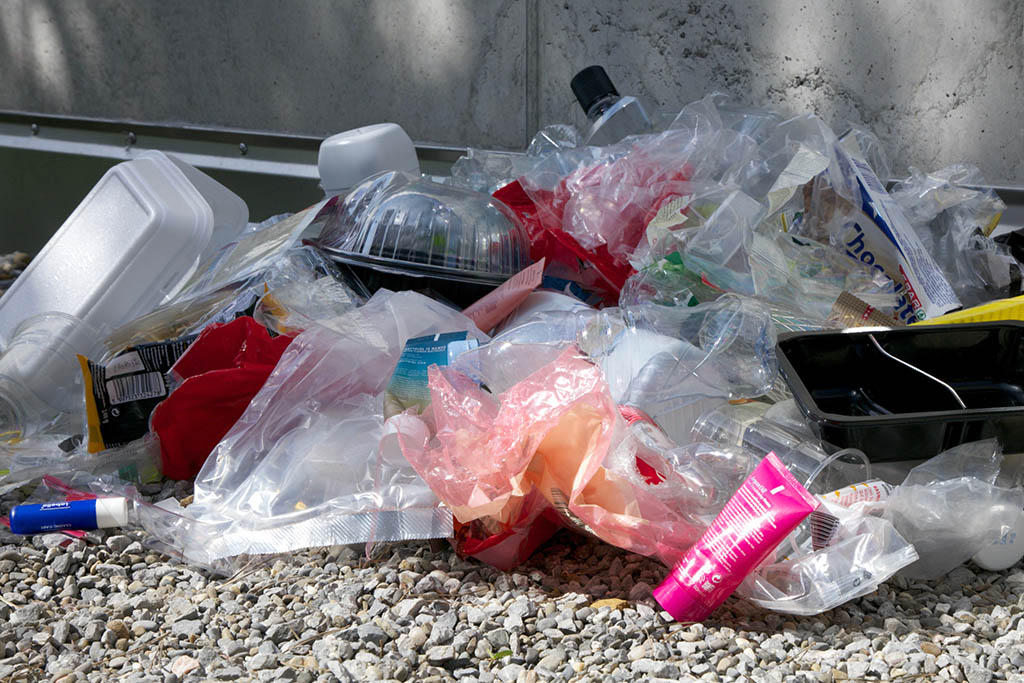
The massive amount of plastic pollution has ignited public concern as well as debate in Davos, but the real work is still to come.
The more than eight million tonnes of plastic leaking into the ocean each year – equal to dumping a garbage truck of plastic every minute – is a serious concern for countries like Japan. Speaking at the World Economic ForumExternal link, Japanese Prime Minister Shinzo Abe said he would call on fellow G20 leaders at the upcoming summit in Osaka to end-micro plastic pollution.
Abe told a packed audience in Davos on Wednesday that, “At the deepest spot of the Pacific Ocean we now find something terrible going on. The bodies of small sea fleas down at the bottom of the ocean hold toxic PCB contaminants in very high density. Some say that microplastics are the cause.”
It is not just our oceans. As Scientific AmericanExternal link reports, the majority of plastic waste ends up in ten rivers – many of which are in Southeast Asia.
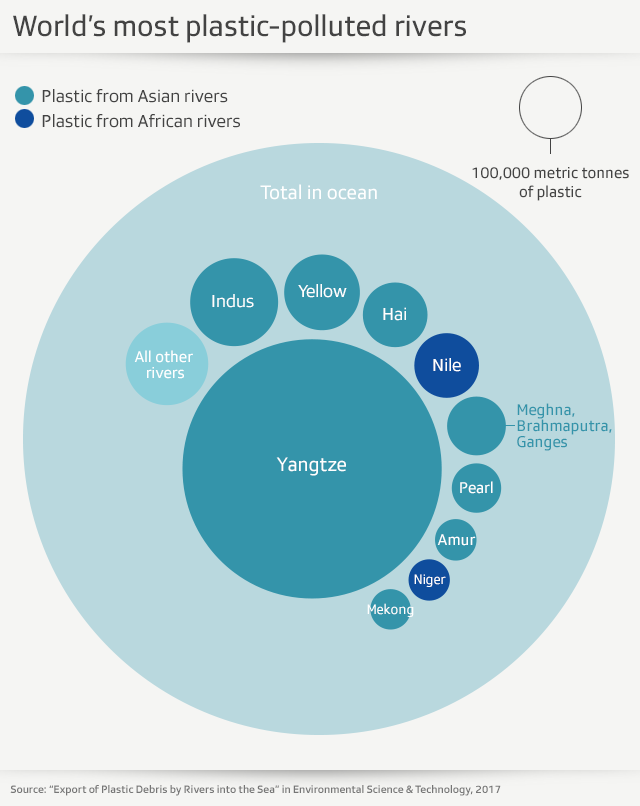
In Switzerland, rivers and lakes are also affected. For example, scientists recently found dangerous toxin levels in Lake Geneva.
Peter Bakker, CEO of the World Business Council for Sustainable Development, that has helped launch a 30-company strong Alliance to End Plastic WasteExternal link, told SWI that the issue had been around for a long time but it came to the fore when Sir David Attenborough’s film, Blue Planet II, was released in 2017.
“A few months later there was an incident with a whale in Thailand that washed up on shore. People tried to save the animal, but it eventually died. They opened the animal up and there were eight kilos of plastic bags inside. It became a very visible demonstration of what the Attenborough film had been talking about,” said Bakker, who, along with Attenborough, is in Davos for WEFExternal link.
The uncomfortable truth about our global plastic problem has also sparked “packaging protests” in Switzerland, yet the country is one of the worst offenders in Europe when it comes to plastic pollution.
Switzerland consumes three times as much plastic as other European countries, but recycles 30% less. Each year, Switzerland generates nearly 100kg of plastic waste per capita – more than three times as much as the European average.
+ Read more about Switzerland’s plastic and recycling challenges
From straws to streams
While countries like Switzerland may not feel the effects of plastic pollution in the way Japan does, the problem won’t be solved by any single country or company.
Bakker cites the need to bring the whole value chain together. “What are the best packaging materials? If it is plastic, what can we do to reduce waste and how can we, once we collect that waste, give it a value through recycling and eventually through reuse?”
Companies from plastic producers like Dow Chemical to consumer goods companies like Procter & Gamble that are part of the Alliance to End Plastic Waste have committed $1 billion (CHF995 million) to tackle the problem through NGOs and individual company actions.
While no Swiss companies are currently part of the Alliance, a recent ranking found Vevey-based Nestlé, along with Coca-Cola and PepsiCo, account for 14% of the branded plastic pollution found worldwide.
In April, Nestlé announced a commitment to make 100% of its packaging recyclable or reusable by 2025, with a particular focus on avoiding plastic waste.
Just nice packaging?
The Alliance, which launched last week, has been criticized by NGOs like Greenpeace for not tackling the root of the problem – the amount of plastic being produced. In a statement, GreenpeaceExternal link Global Plastics Project Leader Graham Forbes said, “this is a desperate attempt from corporate polluters to maintain the status quo on plastics. In 2018, people all over the world spoke up and rejected the single-use plastics that companies like Procter & Gamble churn out on a daily basis, urging the industry to invest in refill and reuse systems and innovation.”
Bakker’s response? “I think the mission of the Alliance is to keep plastic waste out of the environment but that doesn’t just mean we continue to use all of the plastic we currently do today and simply capture it.” He says the Alliance also wants to explore alternative materials that have a better environmental performance.
“Brands like Procter & Gamble are material agnostic. They don’t care if it is plastic or something else. They just want the quality of the packaging for the product to serve their customers.”
Bakker’s colleague, Maria Mendiluce, told SWI that “there is a lot of emphasis on plastics but at the end of the day, we are looking at the future of packaging. What packaging for what, for where. Depending on the country and product, we’ll need different packaging.”
The UN Special Envoy for the Ocean Peter ThomsonExternal link, who is from Fiji, told an audience at the Open Forum alongside WEFExternal link that, “Recycling is a very important part of it…but it is only the end point as far as I am concerned. There is also the refuse, reuse, and reduce that we as individuals can take upon ourselves.”
Filling the consumer gap
On Thursday in Davos, waste management company TerraCycle and several consumer product companies, including Nestlé, launched Loop™ – a shopping system designed to reduce reliance on single use packaging and provide circular solutions to consumers.
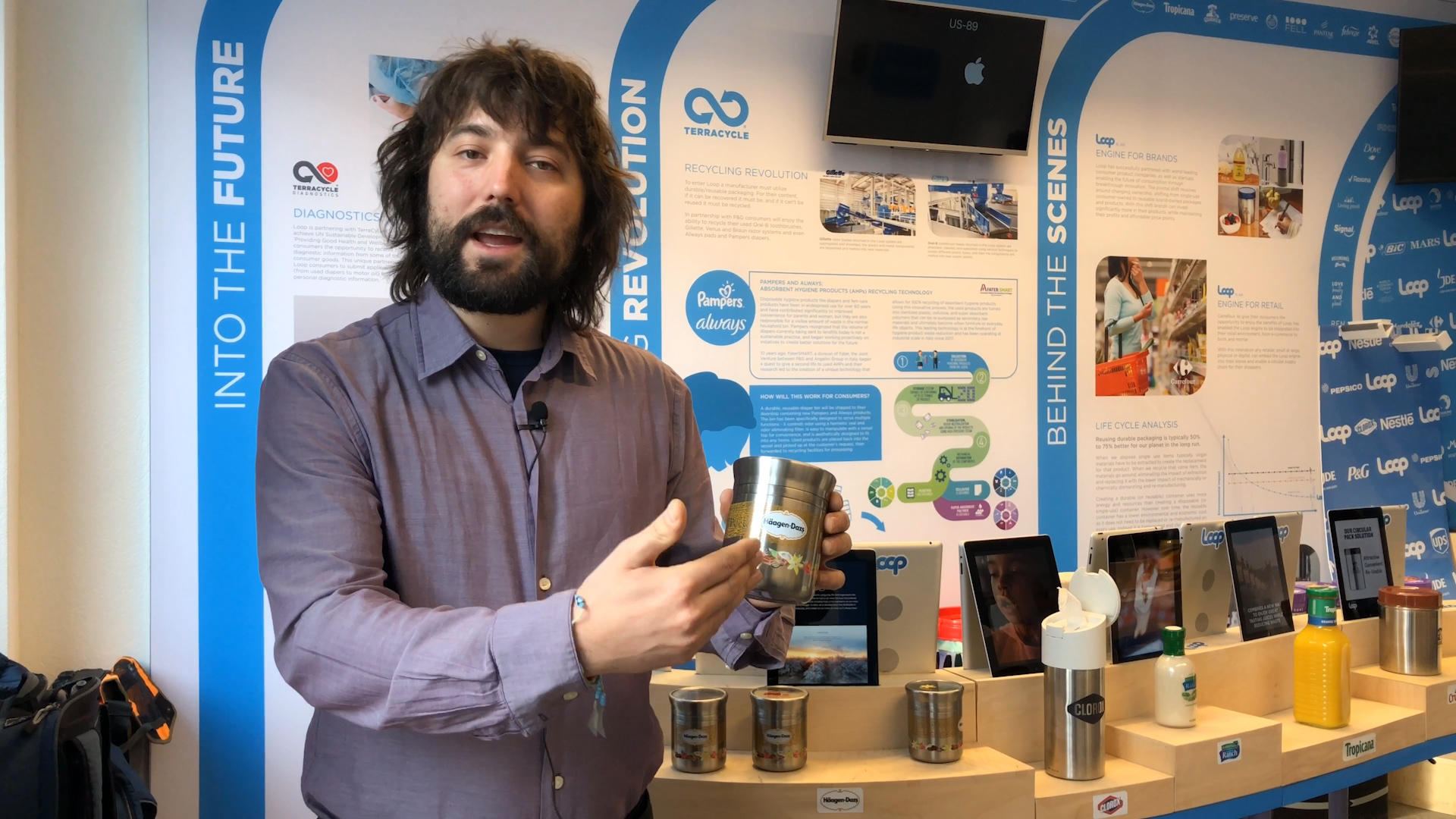
More
An ecopreneur teams up with Nestlé at WEF
TerraCycle CEO Tom Szaky explained, “Through Loop, consumers can now responsibly consume products in specially-designed durable, reusable or fully recyclable packaging made from materials like alloys, glass and engineered plastics. When a consumer returns the packaging, it is refilled, or the content is reused or recycled through groundbreaking technology.”
The system will soon be available in cities such as Paris and New York with an eye towards expansion.
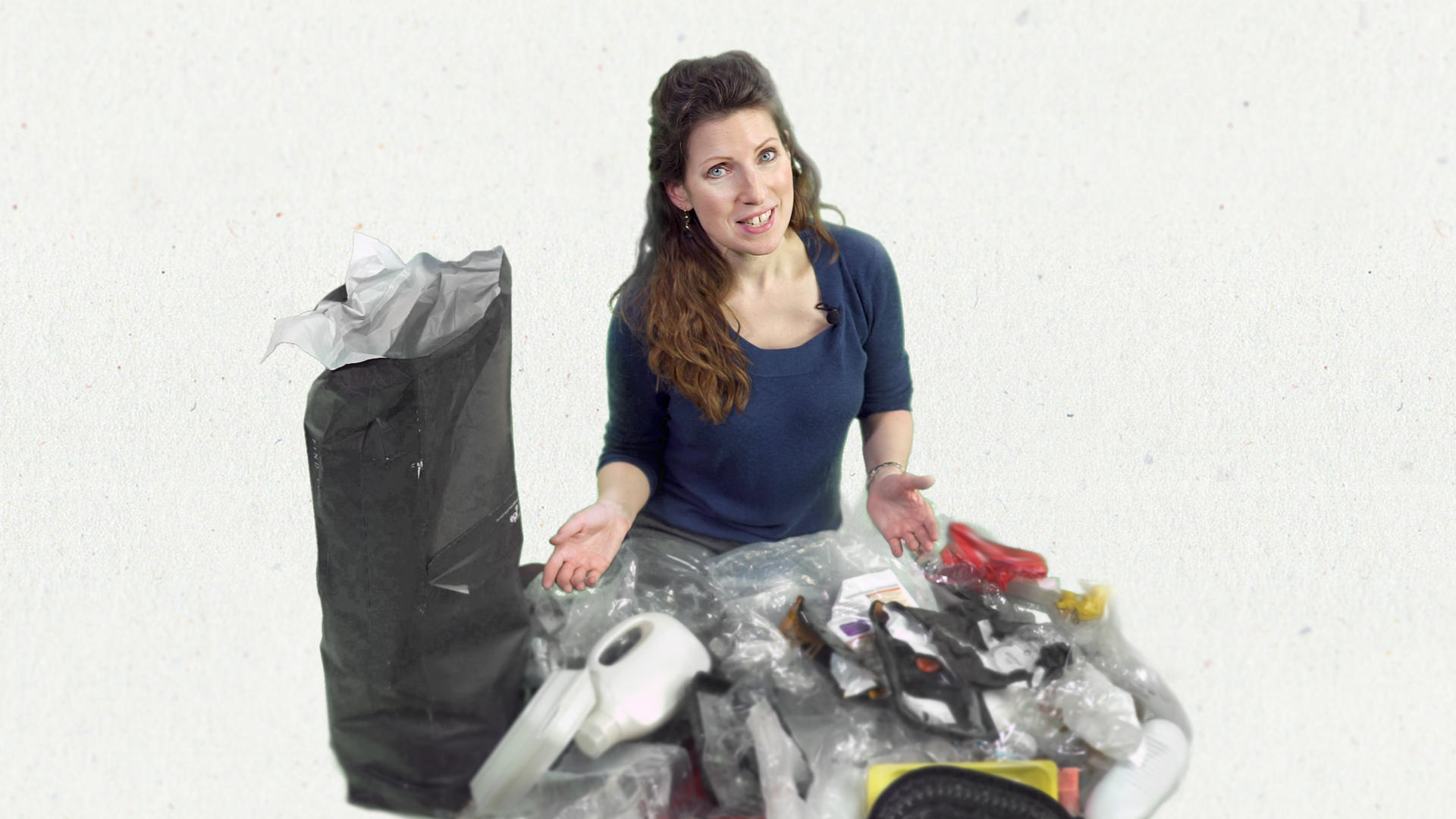
More
Why don’t the Swiss recycle more plastic?

In compliance with the JTI standards
More: SWI swissinfo.ch certified by the Journalism Trust Initiative

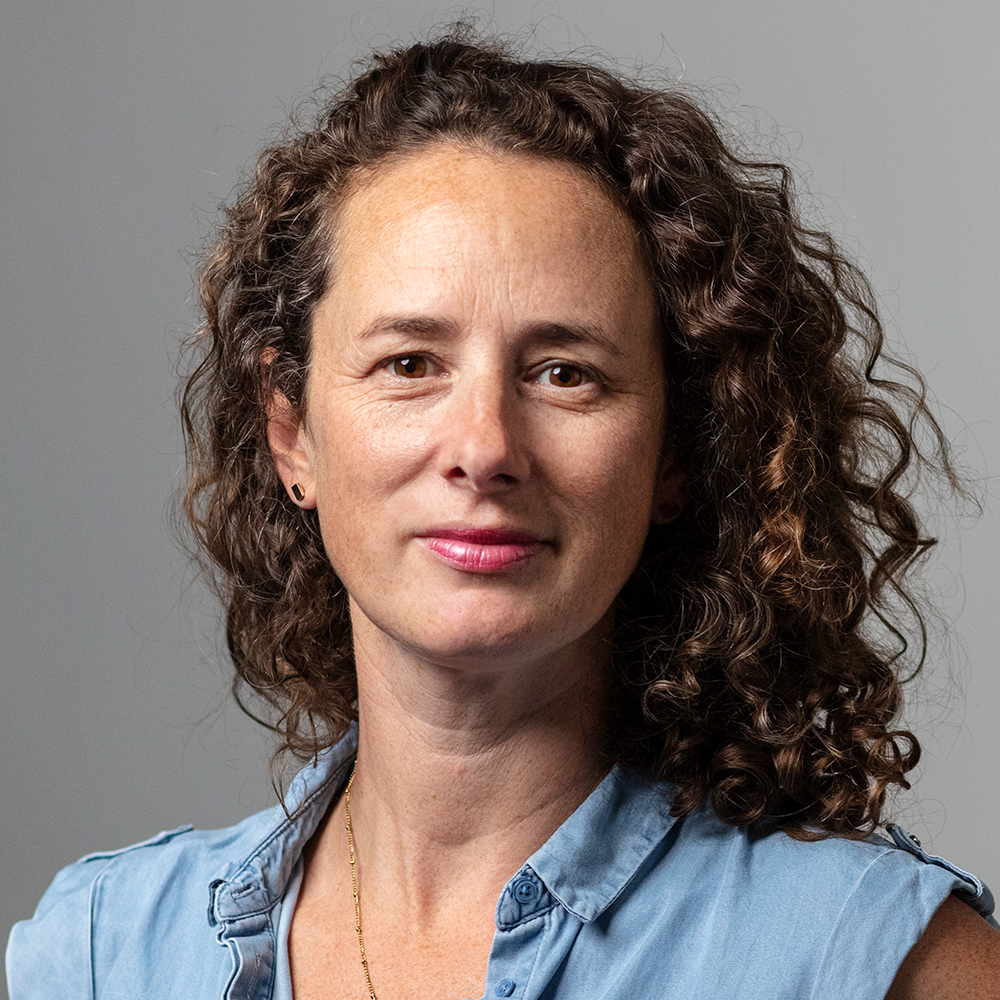
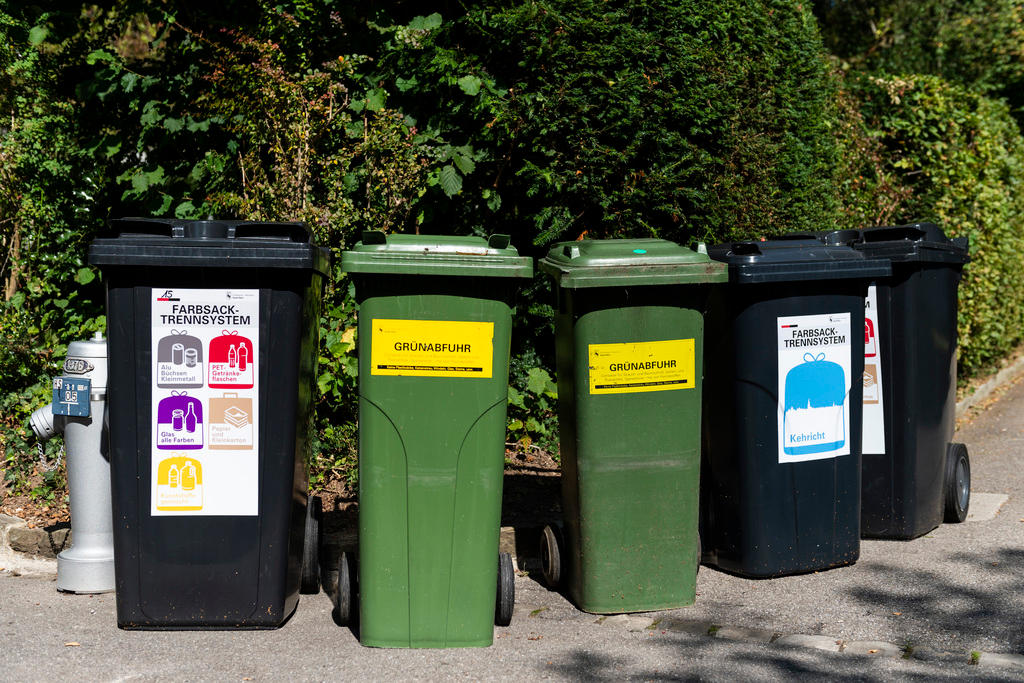
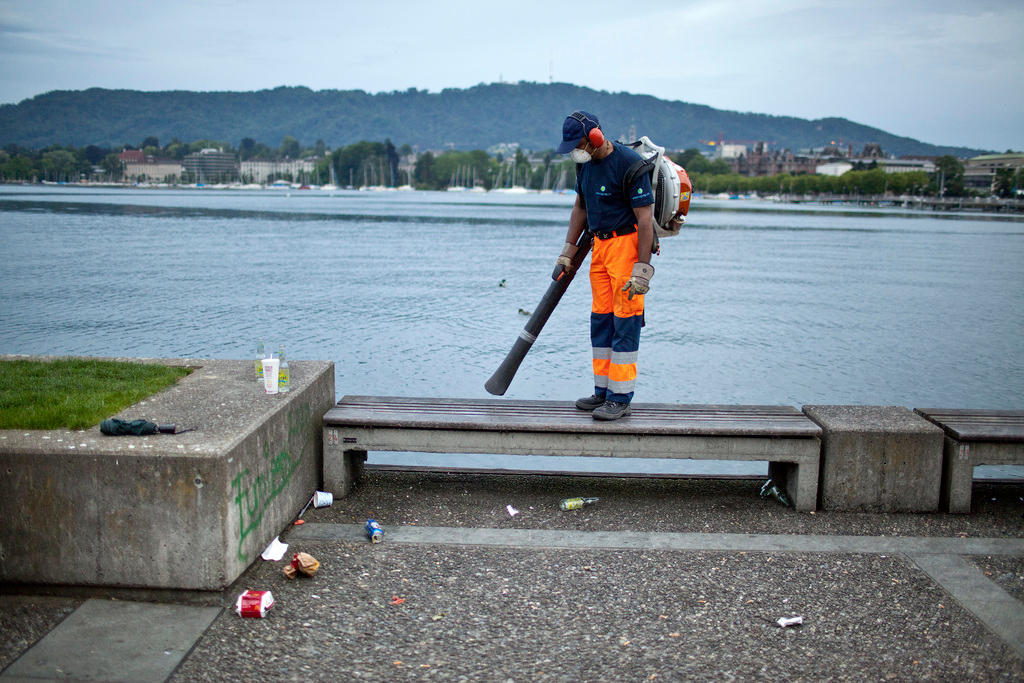
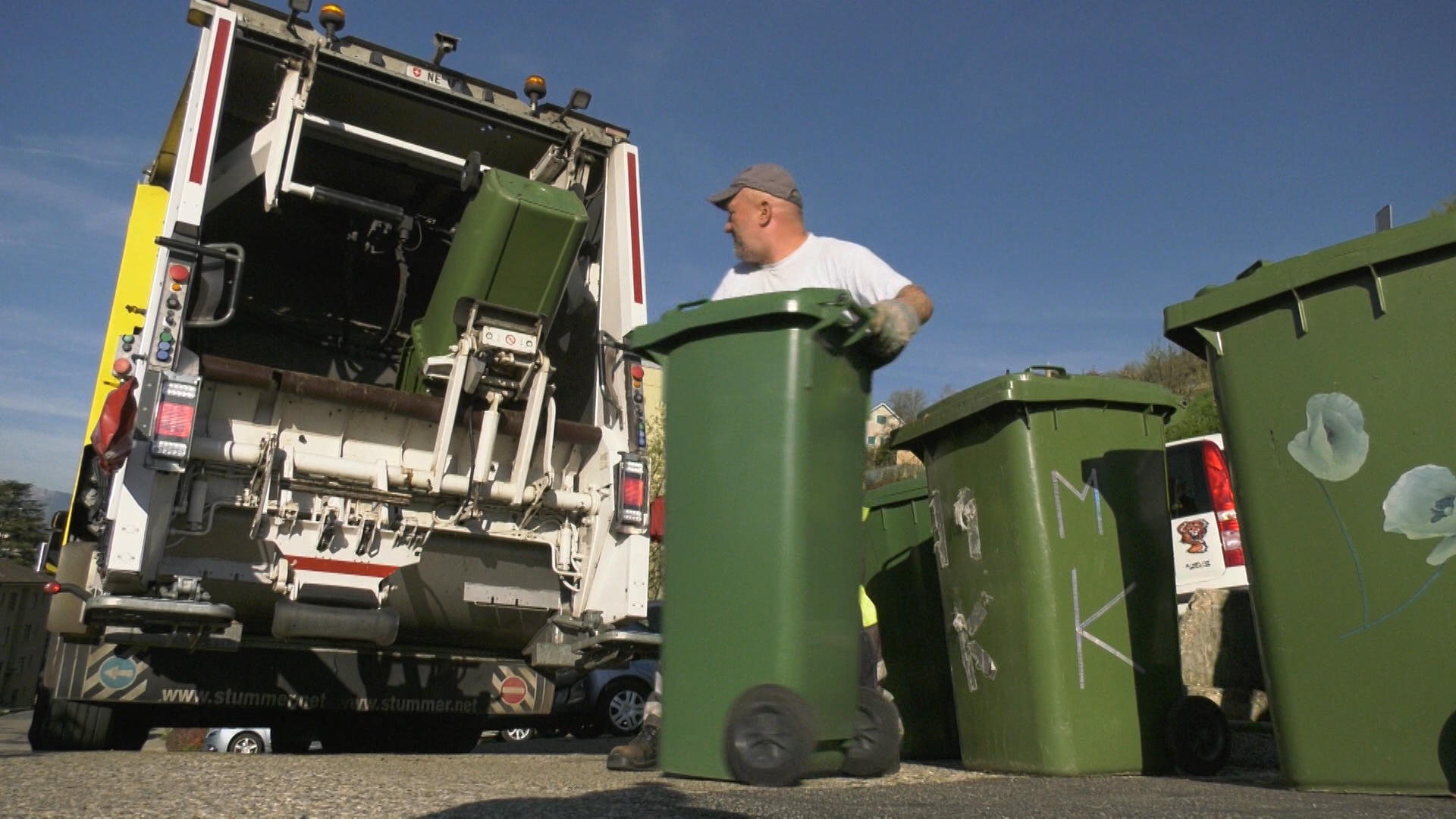
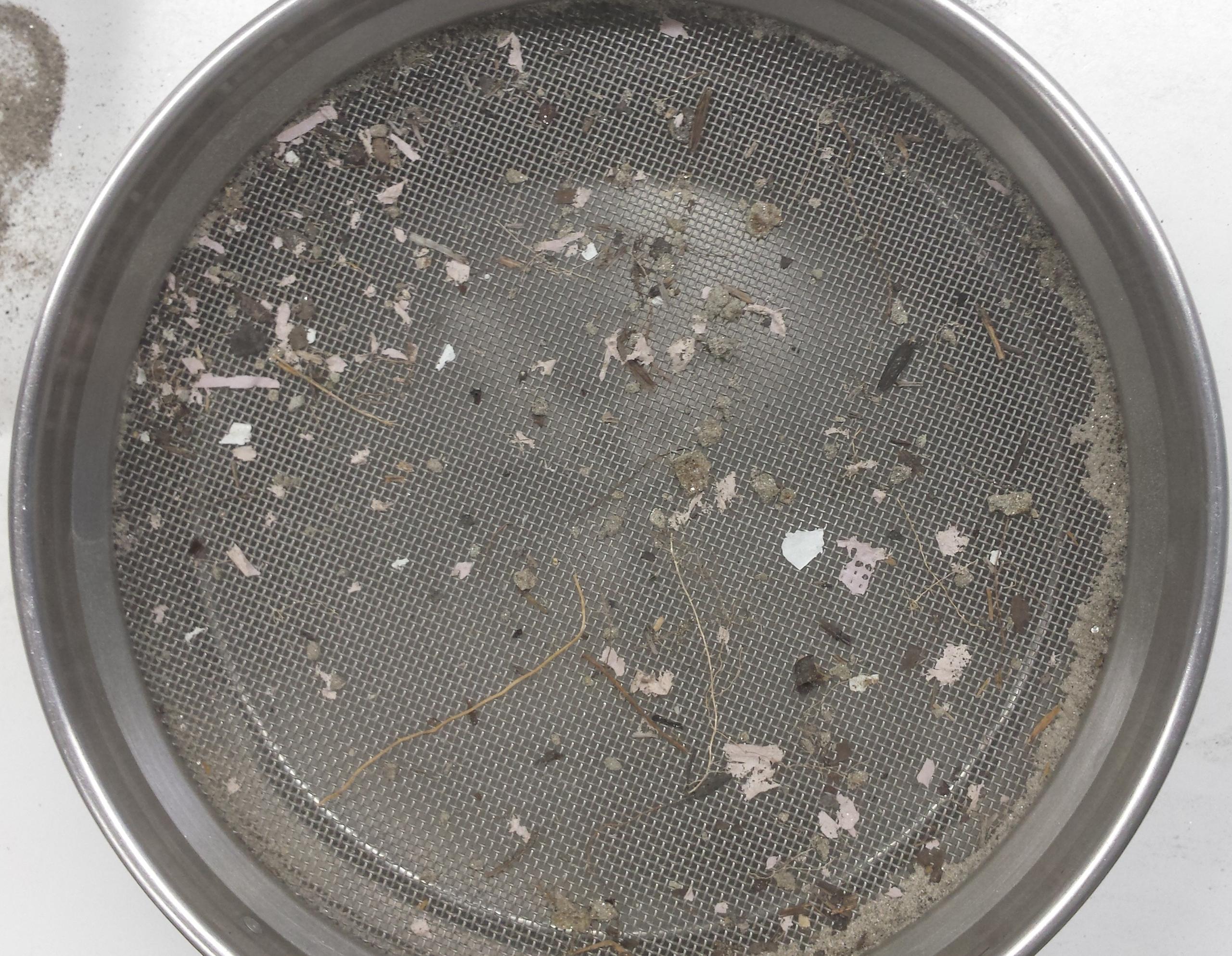
You can find an overview of ongoing debates with our journalists here. Please join us!
If you want to start a conversation about a topic raised in this article or want to report factual errors, email us at english@swissinfo.ch.